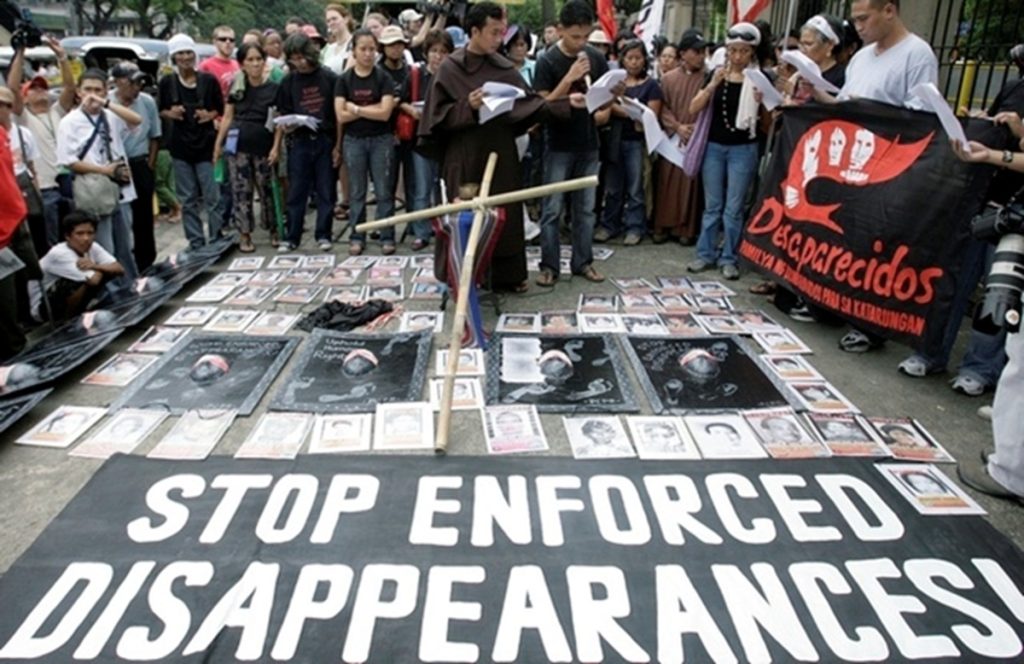Enforced disappearance has emerged as a worldwide issue and is not confined to a specific geographical area. While it was previously mainly associated with military dictatorships, enforced disappearances can now occur in complex scenarios of internal conflict, particularly as a method of politically oppressing opponents.
Every year on August 30, organisations such as the UN and Amnesty International actively work to raise awareness about enforced disappearance as a criminal act that should not be employed as a means of addressing conflicts. Many activists openly share personal accounts, either through the media or public events, of individuals who have been subjected to enforced disappearances and the profound impact that these disappearances have on their families and communities.
Enforced disappearance has often been utilised as a tactic to instil fear in society. The sense of insecurity created by this practice is not only experienced by the immediate relatives of the disappeared but also affects their communities and society as a whole.
According to the Declaration on the Protection of All Persons from Enforced Disappearance, proclaimed by the General Assembly in its resolution 47/133 of December 18, 1992, as a body of principles for all States, an enforced disappearance occurs when:
“persons are arrested, detained or abducted against their will or otherwise deprived of their liberty by officials of different branches or levels of Government, or by organised groups or private individuals acting on behalf of, or with the support, direct or indirect, consent or acquiescence of the Government, followed by a refusal to disclose the fate or whereabouts of the persons concerned or a refusal to acknowledge the deprivation of their liberty, which places such persons outside the protection of the law.”
Victims, as well as their friends, families, and communities, are affected. Once removed from the protection of the law and “disappeared” from society, individuals who are victims of enforced disappearance are stripped of their rights and left vulnerable to their captors.
Some of the human rights that enforced disappearances regularly violate include:
- The right to recognition as a person before the law;
- The right to liberty and security of the person;
- The right not to be subjected to torture and other cruel, inhuman or degrading treatment or punishment;
- The right to life, when the disappeared person is killed;
- The right to an identity;
- The right to a fair trial and to judicial guarantees;
- The right to an effective remedy, including reparation and compensation;
- The right to know the truth regarding the circumstances of a disappearance.
Enforced disappearances typically results in the infringement of a range of economic, social, and cultural rights for both the individuals who have disappeared and their families. They include:
- The right to protection and assistance to the family;
- The right to an adequate standard of living;
- The right to health;
- The right to education.
To solve the problem of Enforced disappearances, governments across the globe need to;
- Ensure that those suspected of criminal responsibility are fully investigated and brought to trial in fair proceedings before regular civilian courts without the use of the death penalty.
- Criminalise enforced disappearance, whether carried out by state agents or non-state armed actors, under national legislation and impose appropriate penalties that take into account the severity of this crime.
- Adhere to the International Convention and acknowledge the authority of the Committee on Enforced Disappearances (CED) to receive and examine communications from or on behalf of victims and other state parties.
- Guarantee that survivors and individuals who have lost loved ones receive redress, which encompasses compensation, rehabilitation, restitution, and assurance that similar incidents will not recur.
- Repeal any amnesty legislation or any other form of impunity, such as statutes of limitations.

